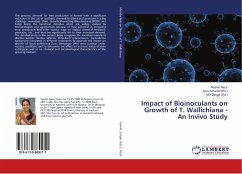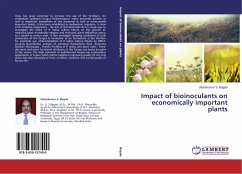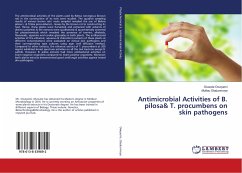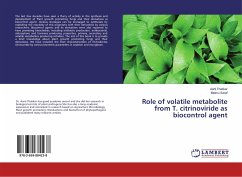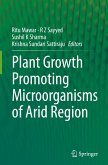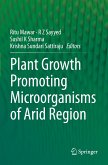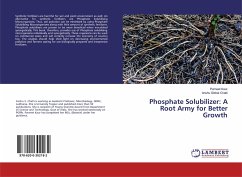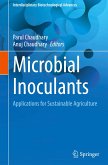The pressing demand for tree production in forests with a significant reduction in the use of synthetic chemical fertilizers and pesticides is a big challenge nowadays. Plant Growth Promoting Rhizobacteria (PGPR) and fungi being the beneficial microbes which are widely studied by microbiologists and agronomists because of their potential in increasing crop production and offer various ways to replace chemical fertilizers, pesticides, etc., and thus has significantly led to their increased demand. The detailed study in the present book comprises the microbial inoculants (Bacillus subtilis, Bacillus safensis, Penicillium griseoroseum, Trichoderma harzianum) inoculated in different treatments to ascertain the impact on growth of Taxus wallichiana Zucc. (Himalayan yew) stem cuttings under nursery conditions and to determine the effect on nutrient status of stem cuttings as well as on chemical and microbiological characteristics of the growing medium.
Bitte wählen Sie Ihr Anliegen aus.
Rechnungen
Retourenschein anfordern
Bestellstatus
Storno

